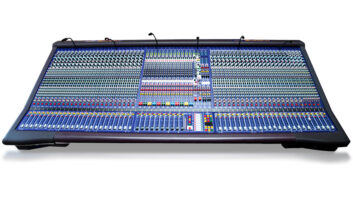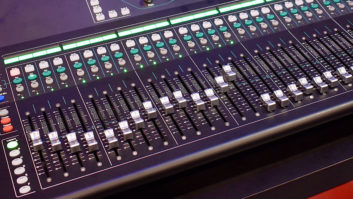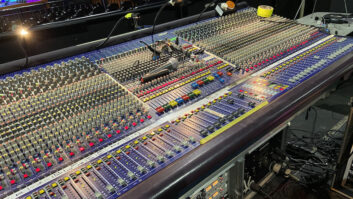
COVID-19 is the gift that just keeps on giving. One of the side effects of the pandemic that’s rearing its ugly head lately is a global shortage in the short-term supply of computer chips, or Integrated Circuits. That’s a big problem, considering the fact that ICs are used in just about everything ranging from dishwashers to cell phones to automobiles and—oh, yeah—digital audio gear.
Does Anyone Know a Good Plumber?
When the pandemic hit, the global economy shifted in ways that no one could have anticipated. Live entertainment and hospitality—airlines, hotels, and the restaurant business—took the biggest hits, while other areas of the economy went through the roof. Who could have predicted that spending so much time at home would make people sick and tired of looking at their outdated kitchen or that dreary spare-room-turned-office, and decide to renovate? That explains the surge in the home improvement business. I shoulda’ been a plumber.
At the same time, the increase in work-at-home raised demand for computers. Folks who never needed a work computer at home now needed one, and many employers were eager to supply the machines in an effort to keep the wheels turning. Add to this the fact that people were forced to stay home, so they spent tons of money on home entertainment devices such as TVs and video games. This explosion in the demand for IC-based devices prompted electronics companies to buy up the chips required to build those devices. Lead times for the manufacture of some chips can now be as long as several months.
Read more Mix Blog Live: Ten-Foot Kick.
Meanwhile, in another corner of the economic universe, automobile manufacturers—expecting that car sales would drop in 2020 and 2021 due to unemployment projections—cut back on production and reduced their orders for ICs (FYI: a modern car uses several dozen ICs). By the time they realized that sales weren’t slowing down, it was too late. Auto manufacturers now have lots filled with millions of cars that are near complete, except for the ICs required for the onboard computers.
Crunch All You Want, We’ll Make More (Maybe)
If you can make great chips, and people are beating down your door to buy them, just make more, right? Wrong. The fabrication of ICs requires electronic-grade silicon refined to a purity of less than one part in 100 billion. Doing that in my kitchen is out of the question. A simple speck of dirt or a discharge of static electricity can easily damage an IC, so traditional production techniques don’t cut it.
In fact, gearing up to manufacture ICs not only takes a “clean room” type of environment, it takes nine figures and a couple of years before actually coming online. And that’s why there’s a shortage.
The Harsh Reality
It’s easy to see that this shortage is likely to cause price increases in devices using ICs (i.e., everything; take a look at what’s happening in the market for video games). What’s difficult to predict is the effect it will have on the pro audio equipment manufacturing industry. I’ve already heard stories about several manufacturers not being able to deliver product in a timely manner, with backorders now ranging from a few weeks to a few months.
Obviously, this is not a good thing, and it’s compounded by two harsh realities:
- If you have a digital console that goes down, you’ll need a contingency plan because chances are that you won’t be able to get it fixed in time for the next gig.
- The chip shortage is likely to hit the pro audio industry harder than other corners of the electronics world because we’re so small compared to, say, the videogame or automobile industries.
Pro audio manufacturers don’t move the amount of product sold within those consumer-facing industries and therefore don’t require chips in the same kinds of quantities. So it’s unlikely for any pro audio manufacturer to float to the top of the priority list of companies in need of ICs.
Now might be a good time to dust off that analog console that’s been sitting idle in storage….







